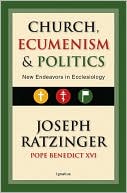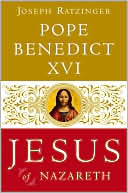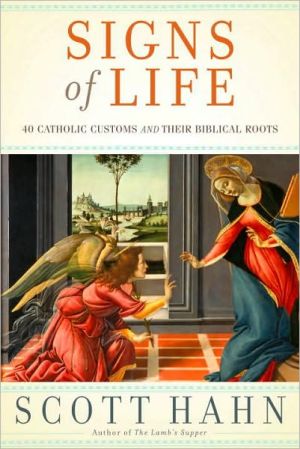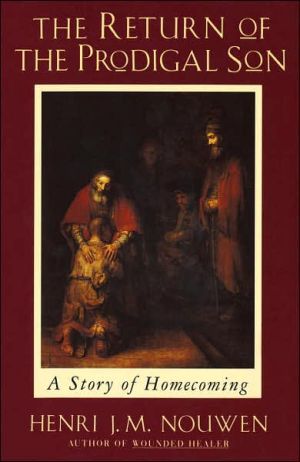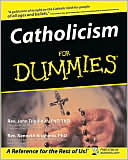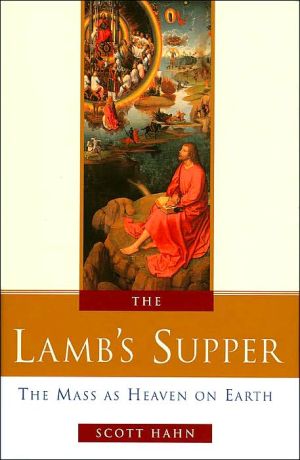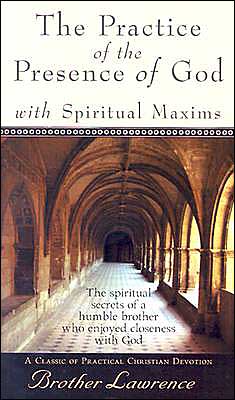Church, Ecumenism, and Politics
Search in google:
This work features the most discussed topics of the life of the Church, treated with unique frankness and depth by the Church's spiritual and theological leader. In this collection of essays, theologian Joseph Ratzinger, now Benedict XVI, tackles three major issues in the Church today—the nature of the Church, the pursuit of Christian unity, and the relationship of Christianity to the secular/political power. The first part of the book explores Vatican II's teaching on the Church, what it means to call the Church "the People of God", the role of the Pope, and the Synod of Bishops. In part two, Ratzinger frankly assesses the ecumenical movement—its achievements, problems, and principles for authentic progress toward Christian unity. In the third part of the work, Ratzinger discusses both fundamental questions and particular issues concerning the Church, the state and human fulfillment in the Age to come. What does the Bible say about faith and politics? How should the Church work in pluralistics societies? What are the problems with Liberation Theology? How should we understand freedom in the Church and in society? Beneath a penetrating analysis on these important topics by this brilliant teacher and writer, both concise and also surprising, is revealed the passion of a great spiritual leader. The result is an exciting and stimulating work, which can be provoking, but never boring.
Foreword 9On the Nature and Structure of the ChurchThe Ecclesiology of the Second Vatican Council 13The Church as the Body of Christ 13The image of the Mystical BodyEucharistic ecclesiologyThe collegiality of the bishops 20Church as People of God 23Modern variations on the "People of God" concept 29The Primacy of the Pope and the Unity of the People of God 36The spiritual basis for primacy and collegiality 36Collegiality as the expression of the "we" structure of the faithThe interior basis for the primacy: Faith as responsible personal witnessRetrospective proof: The martyrological structure of the primacy 42The witness structure of the primacy as the necessary consequence of the opposition of world and ChurchToward a concept of the primacy understood in martyrological termsConclusion: A view of the situation in ChristendomQuestions about the Structure and Duties of the Synod of Bishops 51The synod of bishops according to the new Code of Canon Law 52Nature and purposes of the synodAdditional provisionsResultQuestions about synodal reform 57Unusable modelsA clarification of fundamental elements of the Church's constitutionConcluding reflection: Why hold synods?Ecumenical ProblemsProblems and Prospects of the Anglican-Catholic Dialogue 69Introduction: Agreed statements and the position of the Roman Congregation for the Doctrine of the Faith 69The fundamental problem of the dialogue: The authority of tradition and the central organs of unity 72Preliminary note on the status of the discussionThe authority of traditionThe universal Church and her central organs as the prerequisite of traditionTradition and beliefTradition can never be concludedTradition and EucharistConclusion: Prospect for the future 87Appendix 90Review of the debate over my article 90Two fundamental motifs of modern ecumenical theology and their problematic nature 93The "conciliarity" of the ChurchTraditionibus or sola scriptura? A new ecumenical formal principleLuther and the Unity of the Churches: An Interview with Joseph Cardinal Ratzinger 100Appendix 121On the Progress of Ecumenism: A letter to Theologische Quartalschrift, a periodical published in Tubingen 132Church and PoliticsFundamental QuestionsBiblical Aspects of the Theme of Faith and Politics: A Homily 143Theology and Church Politics 148What is theology? 148Church and theology 153The notion of "Church politics" 155Church politics and theology 158Conscience in Its Time: A Lecture Given to the Reinhold Schneider Society 160Nature and importance of conscience 163Las Casas and the problem of conscience 165Dimensions of the Concept of Freedom: Church-State-the EschatonFreedom and Constraint in the Church 175The concept of "freedom" in modern intellectual history 176The starting point in the fundamental approach of the EnlightenmentFreedom through institutionsFreedom through the logic of historyThe modern concept of "freedom" in the life of the Church 182Toward a definition of freedomApplications of the modern understanding of freedom in the ChurchNotes on the biblical concept of freedom 186Conclusions on the subject of freedom and constraint in the Church 190A Christian Orientation in a Pluralistic Democracy? On the indispensability of Christianity in the Modern World 193The three roots of the contemporary threat to democracy 195Self-criticism of the political influences of Christianity 200The indispensability of Christianity in the modern world 203Europe: A Heritage with Obligations for Christians 209Counterimages to Europe 210Back before EuropeEscape into the futureMarxismPositive components of the concept of Europe 215The Greek heritageThe Christian heritageThe Latin heritageThe heritage of the modern eraTheses for a future Europe 219Eschatology and Utopia 223The chiliastic model 226The model of the Great Church: Synthesis of eschatology and "utopia" 228The utopian city of the monks 233The evolutionist design of Teilhard de Chardin 235Freedom and Liberation: The anthropological vision of the Instruction Libertatis conscientia 239The question about the fundamental conception of freedom 240Ethos and historyAnarchy and obligationPractical consequencesThe contribution of the Bible 247Exodus and SinaiThe universalization of the Exodus through Christ and its consequencesPolitical rationality-utopia-promiseClosing remarks: Likeness to God and freedom 255Sources 257
